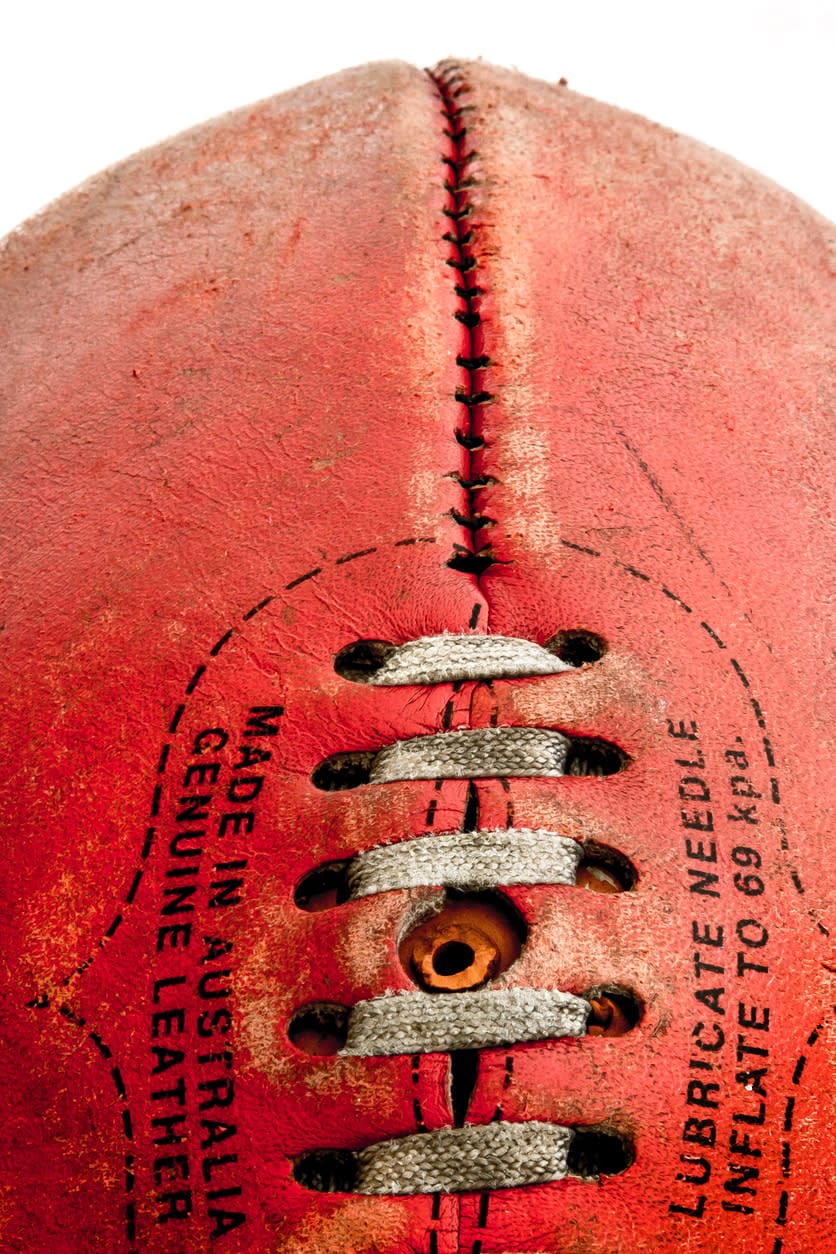
In Australia, nothing in the world of sport is much bigger than the AFL and NRL grand finals. The culmination of the year’s footballing contests, the grand finals attract huge TV audiences and enthuse people who don’t even follow the game that closely.
For bookies, the calculus is simple. Grand finals provide a fabulous marketing opportunity, and along with the big racing carnivals, a great opportunity to sign up new punters.
Just like novelty bets, such as whether the trains will run on time, the bookies are prepared to take a bath on sp

orting events, if it means they can grow their market. Grand finals are a key way to market the product, get people to establish an account, and become regular gamblers.
The advertising and marketing targets young people – especially young men, who appear to be a key demographic for the bookies. They often have a fair amount of disposable income, and it can be a ‘social thing’ with their mates.
Sports betting is Australia’s fastest-growing gambling segment. In 1994-95, total sports betting losses (what he punters dropped) was $19.6 million, in real terms (2015-16 values). By 2015-16, this had grown to $920.7 million.
Between 2011-12 and 2014-15, sports betting grew by an average of 23.4 per cent in real terms. It was fuelled by the advent of the internet, growing numbers of bookies, and the entry into the market of big offshore outfits such as Ladbrokes, bet365 and William Hill. The sports betting market took off.
Still, at $920 million (more than a billion dollars this year, on trend data), sports betting is not anywhere near the same scale as pokies gambling. In 2015-16, pokies in pubs and clubs gathered $12.1 billion from users. Pokies in casinos were responsible for at least $2 billion more.
Biggest gamblers
Australians are the world’s biggest gamblers, on a per capita basis. This isn’t because of some inherent national attribute. We gamble a lot because the pokies are everywhere. They account for about 60 per cent or more of total gambling losses of $24 billion, after all.
This also means, however, that the regulation of gambling has traditionally been less effective at limiting harm than it might be, because pokies have normalised gambling so much. When the internet came along, and the bookies started advertising non-stop, the penny began to drop for people who don’t frequent pokies pubs and clubs: we need some restraints on this activity.
Gambling prevalence studies in Australia suggest that between 5 per cent and 13 per cent of adults use the internet for sports betting. Racing is also of considerable importance to online bookies, with about two-thirds of such bets now reportedly online. However, real racing expenditure is very flat, having increased 3.8 per cent in real terms since 1990-91.
Despite the relatively modest proportion of people betting on sports, and using mobile or internet platforms to do so, there’s a fair deal of evidence to support public concern about the growth of sports betting. The recent HILDA survey (which reported gambling activity, for the first time) suggested that among monthly sports betters, about 41 per cent experience some level of harm. This is on par with monthly pokies users and race betters. About 6.7 per cent of monthly sports betters experience very severe harm, again on par with pokies and race betters. This may mean separation, financial disaster, mental health issues, neglected children and, in some cases, suicide.
The integrity of sport is also a very big deal. Increased gambling on sport carries big risks – as we’ve seen in Australia with the NRL and tennis, and internationally with cricket and soccer. Big betting pools make attempts to undermine the integrity of sport more likely, and harder to detect.
At grand final time, the bookies want you to think that betting on the game will show how keen a sports supporter you are. Unfortunately, for a fair proportion of those who become regular sports betters, harm is the only guaranteed outcome.
The federal government has clear constitutional responsibility for internet activity, and the Interactive Gambling Act regulates this to some extent. Bookies remain registered with state or territory authorities. Most are licensed in the Northern Territory, which has very low tax rates, and perhaps less oversight than other jurisdictions.
Advertising reductions
Recently, the federal government has moved to reduce the time bookies may advertise during sports broadcasts. They’ve also introduced a package of consumer protection interventions to reduce harm. Like tobacco, restricting, sponsorship, advertising and marketing of gambling products around sport may well be required if we want to get this issue under control. This is especially the case if we’re concerned about the impact on children, who we know now increasingly see gambling as a normal part of the game.
All of this indicates that a flutter on the grand final might end up being a costly exercise, if it initiates a regular gambling habit. The social costs of gambling in Victoria were estimated at about $7 billion in a study released last year, and the burden of disability associated with it at the same order of magnitude as alcohol misuse. Gambling harms can be severe, and sports betting is right up there with the pokies as a major cause of this harm among regular users.
At grand final time, the bookies want you to think that betting on the game will show how keen a sports supporter you are. Unfortunately, for a fair proportion of those who become regular sports betters, harm is the only guaranteed outcome.
If you’re tempted by a special offer, think again. The only support you’ll be showing is to the bookies’ bottom line. And you could be adding to the likelihood that someone will start damaging the integrity of your sport, and its heroes.
Gambling data in this article is from the Australian Gambling Statistics, available at: http://www.qgso.qld.gov.au/products/reports/aus-gambling-stats/





